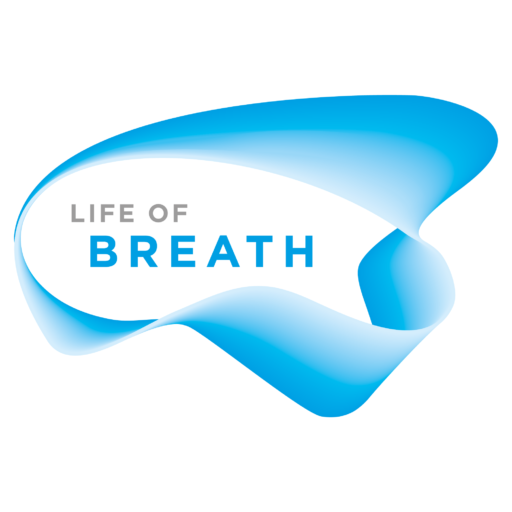Ethics is politics: whose ethics counts?
This post was originally published by CDJ Plus. Pradeep Narayanan is Director of Research and Capacity Building at Praxis Institute for Participatory Practices, New Delhi and is collaborating with Life of Breath team member Andrew Russell for research on tobacco farming in India. He recently visited Durham University to talk about the challenges of doing participatory research with disadvantaged communities. He writes:
There are innumerable studies on poverty and inclusion. These studies are largely about the poor and those in the margins. Research necessarily requires processes to decipher the reality of poor people to know why they are poor. Often people are poor because they are marginalised. Their participation in the decision making of significant institutions associated with the State and the Market is not strong enough to further their interests. It would be naïve to believe that the research emanating from any of these institutions, where participation of those in margins is negligible, will have active participation of the poor. Like any other programme of these non-inclusive institutions, research, if it proceeds in a conventional way, will reach out to only those who are already influential. Hence, the research will depict the perspectives of the loudest and powerful voices. So there are those people who are powerful and there are those who are powerless. Ideally, research aims to reach out to those who are powerless, so that their reality counts. In other words, positive discrimination towards the voiceless is the very definition of research. Objectivity in research actually means to identify such ’positive discrimination’ processes which would lead those in margins to participate in the study.
Despite many studies insisting on community participation in research, they do not necessarily alter power relationships in favour of the poor. There are a number of reasons for that. Does research ethics play any role? When participatory research moved from tool-centric, extractive research to approach-based community-led processes, what remained constant was the way research institutions controlled the research through ethics. Over the period, the Institutional Review Board has created certain rules and norms that are in the back of the mind of the research-design developer. These rules do influence research questions and methods, as much the use of the product.
Praxis – Institute for Participatory Practices has organised community-led ethical review processes for a number of its studies. As of now, they supplement the Institutional Review Board mechanisms. This is based on certain assumptions. Firstly, there is no the ethics. Ethics is temporal, contextual, social as well as cultural. If the research depends upon temporal, contextual, cultural and social factors, the diversity in the understanding of ethics needs to be integrated into the research design. Secondly, even if common ethical imperatives are discernible among the various emergent perspectives, some degree of prioritisation will tend to be required by an Institutional Review Board, which, for reasons such as time and expertise, may focus more upon one aspect of ethics than another. In that sense, clearly, there is choice making by a set of appointed experts. This means ethics is politics, and depends on the “access to power” of those involved in making those decisions. Finally, there is also ‘received’ ethics, based on the history of what Institutional Review Boards have approved or disapproved over the years. The legacy of these historical decisions often creates varied conceptions of ‘ethics’ among researchers. Hence, there is a varied interpretation of ‘ethics’ even among researcher communities, which, whilst not monolithic, definitely have a voice to represent them in these platforms to decide what ethics is. Imagine, now, those communities, who are subject of research. They, on the other hand, tend to be voiceless in the way that ethics is defined or in the way that the process of dealing with ethical issues get defined.
Let me take an example of the latest Community-led Ethical Review Board constituted for a bonded labour and child labour study. The composition of the Board consisted of those who are currently child or bonded labour or ex-child or bonded labourers, but below the poverty line and belonging to vulnerable sections of the community. The review process was a two-day process, with one day focusing on training them on ‘ethical review processes’ and the second day being spent on actual review of the study design from an ethics perspective.
The challenge was about the term “ethics”. The way it was translated in the local language was “How to ‘protect’ powerless in the study from various expressions of power?” The stakeholder mapping was done and various power relationships were drawn. Some of the most prominent power relationships that emerged were of the following categories; (a) between research team and researched; (b) between the research design and researcher, – that is, even if researcher wants to change certain processes, it is impossible because the research design would not allow it; (c) the influence of research methods on the research findings and the researched; (d) among the researched, that is dominant versus voiceless communities; and (e) often even among marginalised communities – for example, between men and women, younger and elderly, and able and disabled and such other aspects. The objective was to ‘address’ all kinds of potential problems that powerless sections might encounter in the context of various eventualities.
Whose Ethics counts? Being part of both Institutional Review Board processes and the community-based processes, one can easily say that both these processes are often biased and influenced by the worldview of participants. There is an active attempt to go beyond the purpose of research into ethical values, but if one look into the ethical considerations that get listed, they very often reflect the social change one wants to achieve. They include values such as transparency, equality, participation of everyone, honest consultation and informed consent. They are not easily achievable in society, and therefore probably not in research as well. At the community level, what is paramount in the mind of the Board is the protection of the community. At the Institutional Review Board, what is paramount is to protect the institution from any risk that may arise if the community is not protected during the study. There is a big difference between these two ethics. So it is important for us to decide: whose ethics counts? If the community is better placed to define its ethics and to find ways to protect itself from unethical practices, it is better to reach out to the community and understand the problem on the ground. Their ethics count as much as anyone else’s.
How, then, to define ‘whose reality counts’ in research? Participatory research through expansive participatory tools has arguably been able to actually decipher certain realities of voiceless communities. However, there is a possibility that their voices could become just case stories or footnotes. It is probably because the analysis design was not developed in a participatory way; and because the community does not own the research. The irony is that Data belongs to the community whereas research belongs to the researcher. A community-based ethical review process often says that (a) the community should be involved in analysis and (b) the community should be involved in dissemination, because the risk they prioritise is that their data would get lost in the power contestation during analysis. How more unethical a research could be if it ends up not mainstreaming the realities of voiceless communities!
Is a ‘consent letter’ ethical? This is a classic example of how a progressive instrument becomes a regressive institution. A consent letter became mandatory so that the researcher necessarily consults participants and takes consent for their participation after the participant gets informed of the purpose of the study and how the study would use the information. What was important was not the consent letter, but the very process of deliberation with participants. However, invariably, the consent letters have become a record for the institution to use if subsequently the respondent says that they were not consulted. The consent letter probably comes from an understanding that the researched is ‘powerful’. What is important is to understand that the researched community is very diverse in terms of access to power. The consent letter could become very disempowering for the community, when they know that they have already consented to the process, and have less space to back out or challenge the study process or findings. In fact, today, consent letter often happens to be practically the only instrument that is used to enforce ethics among researchers! There is probably a need to study whether this instrument has evolved into a regressive institution.
Interestingly, Praxis had an experience wherein a community group asked researchers to sign a letter that any product that arises out of research that has implications for the community group would require a prior approval from the community group. The first thing I thought was how unethical this group is – by seeking to become gatekeepers of the community – but then I reflected: how different are we when seeking a consent letter from the participants? At the end it is about a letter substituting efforts to build trust between the research team and the community. Trusting the community is an ethics that seems to get compromised. The last recommendation that often comes from community ethics processes is that the ethical review should not be a one-time process: rather, it needs to be embedded in the study, so that the defining of ethics is itself seen as a continuing and iterative process.
Participatory research will not be participatory enough if any aspect of the research is controlled hierarchically. It is important to disperse the power. It is of course also important to understand that if the research is not participatory, it is not ethical anyway. However, it is also true that just being participatory means that the research is governed by certain ethics. The community ethics is not necessarily the right ethics; in the same way, neither is the ethics as defined by the Institutional Review Board. What is important is to allow voices of ‘ethics’ from the community to be counted: because ethics is politics.



